
Leopard’s Claw
A love and adventure story with the West African jungle as the main backdrop. We gain some insight into the spiritual influence of African social institutions and conditions of African inner life. (kirk202) [chương_files]










A love and adventure story with the West African jungle as the main backdrop. We gain some insight into the spiritual influence of African social institutions and conditions of African inner life. (kirk202) [chương_files]
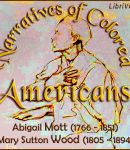
Abigail Mott was a Quaker and abolitionist from New York who, along with fellow Quaker M. S. Wood, has compiled a provocative collection of stories of “Colored Americans.” They range from well-known figures such as Phillis Wheatley and Sojourner Truth to the common men and women who give poignant insights of their life. Selections consist of short anecdotes, essays, stories, letters and poetry. Many have strong religious and spiritual themes. – Summary by Larry Wilson [chương_files]
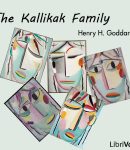
The Kallikak Family: A Study in the Heredity of Feeble-Mindedness, written by famous American psychologist and eugenicist Henry H. Goddard, is a famous but controversial extended case study following the Kallikak family (a pseudonym from the Greek words Kallos “beauty” and Kakos “bad”) for the inheritance of “feeble-mindedness,” a general category referring to a variety of mental disabilities including mental disabilities, learning disabilities, and mental illness. Goddard concluded that a variety of mental traits were hereditary and society should limit reproduction by people possessing these traits, which in turn helped to spur on the destructive eugenics movement, especially in the United States. Note: For the charts printed in Chapter II and referred to throughout the text, please refer to a visual copy of the book. – Summary by Mary Kay and Wikipedia [chương_files]
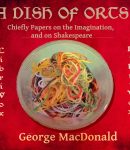
Readers of George MacDonald are used to his engaging story-telling, winsome characters, and simple theology of trust in God as Father. But this book shows a different side of MacDonald. A Dish of Orts is a varied collection of essays, mostly in the nature of literary criticism. These essays are, in MacDonald’s words, “but fragmentary presentments of larger meditation.” – Summary by Devorah Allen [chương_files]

This is the 32nd Coffee Break Collection, in which Librivox readers select and read stories or poems, fiction or non-fiction pieces of fifteen minutes’ duration or less, suitable for short commutes and coffee breaks. The subject for this collection is WILDERNESS. The collection is full after 20 pieces have been submitted. [chương_files]
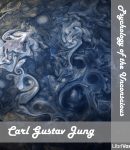
Jung says in his subtitle that this work is a study of the transformations and symbolisms of the libido and a contribution to the history of the evolution of thought. [chương_files]
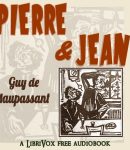
This short novel’s titular characters are brothers. An old family friend dies, leaving without explanation his entire fortune to Jean, the younger brother. Pierre, the protagonist, is puzzled, jealous, and increasingly bitter. A bequest, a secret, a major decision. This, Maupassant’s fourth novel, is considered by many to be his finest. (Lee Smalley) [chương_files]

Ever wondered if there is any “theoretical basis” for the well-known Myers–Briggs Type Indicator Personality Test? In this groundbreaking work of typology, Jung proposes three key dichotomies – extraversion/introversion, sensation/intuition, as well as thinking/feeling – as an attempt to reconcile the differing theories of Sigmund Freud and Alfred Adler. – Summary by Cao Yuqing [chương_files]
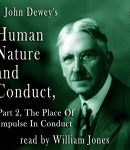
Part 2 describes Dewey’s concept of IMPULSES. They encompass the interaction of one’s self with the environment. When the environment encounters problems with one’s HABITS, Impulses are the motivating, innate forces which prompt one to modify habits and/or modify the environment. “Nature vs Nurture” explanations of someone’s personality are deceptive and fallacious. This stems from the human inclination to CLASSIFY things – practically everything! Innate behaviors are a collection of habits which one’s culture has solidified as Customs. Most education is not learning but rather training of one’s habits to harmonize with local customs. Human nature is plastic, malleable. Customs are, almost by definition, rigid. And, because one’s environment is always changing, customs and its supporting habits are continually being tested. Nations disintegrate when their customs grow inflexible. A MORAL ACT is one whose effects are fine tune and reorganize habits. Thought arises then when habits are hindered and only impulses are active. The basic motor of human nature and conduct is HABIT, not reason or innate instinctive drives. In Dewey’s theories of education, he asserts that education should be leading youth away from society’s dysfunctional habits. He decries the fact that our economic theories concentrate on OWNERSHIP of things rather than the ways we USE things. – Summary by William Jones, Soloist [chương_files]

A collection of 12 articles/essays that G.K. Chesterton wrote for Vanity Fair magazine in 1920-1921, under the general title “The Next/New Renascence: Thoughts on the Structure of the Future.” (Summary by Maria Therese) [chương_files]
Copyright © 2024 | FreeAudible